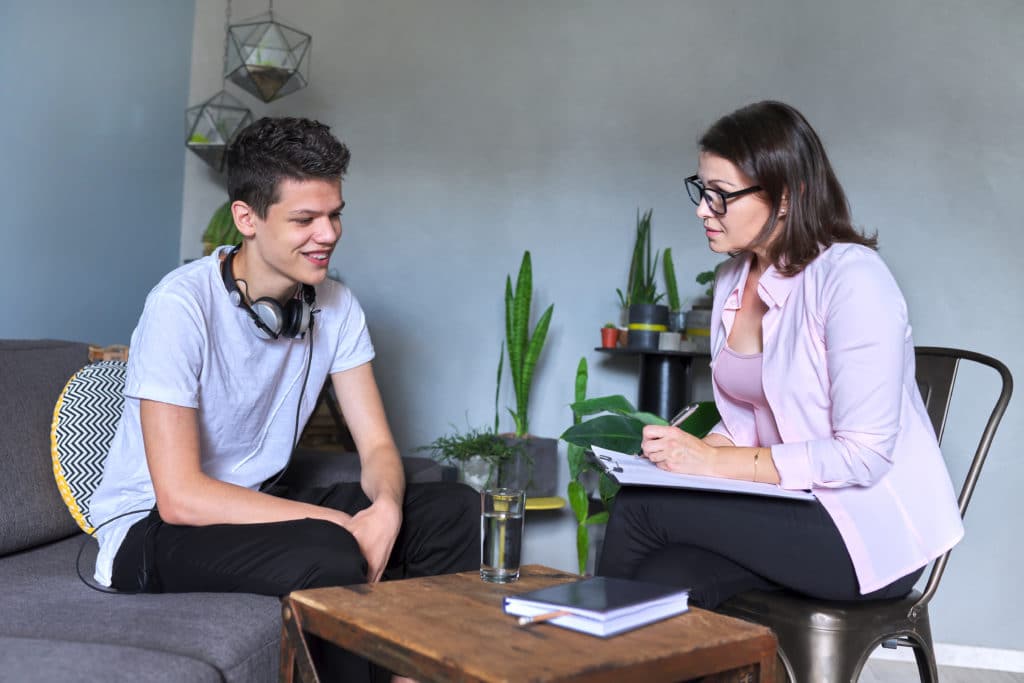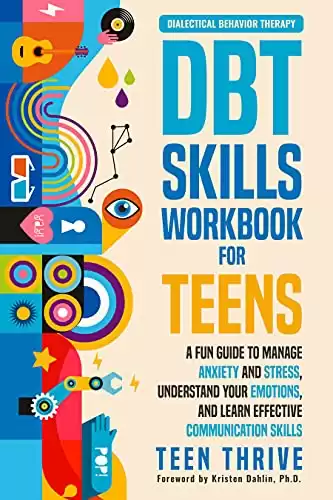From a Therapist: How to Get Started With Counseling for Teens

From mood swings to depression, teenagers are more susceptible to mental health issues than most people realize. The stats show that 1 in 5 teenagers experience a mental health problem at some point. It never ends well if nothing is done to address these issues.
It’s not all doom and gloom, though. As a parent, the earlier you spot signs of a mental health issue and seek counseling for your teen, the better. Counseling can help identify what’s troubling your teen and set them on the path to recovery.
Counseling for teens is an excellent option for many families because it offers a safe, supportive environment where your child can talk openly about what they’re going through. By working with a qualified professional, your teen can get the support and guidance they need to make positive life changes.
Table of Contents
Who is Anxiety Coaching For?
- Individuals who feel overwhelmed and all over the place
- Those who want professional help but are on a budget
- Those who need someone to vent/talk to
- Individuals looking to improve their self-esteem
- Individuals suffering from insomnia, panic attacks, racing thoughts, intrusive thoughts, and postpartum anxiety/depression.
Common Issues Teens Struggle With and How Counseling Can Help
Low Self-Esteem and Negative Body Image
In an age where social media is pervasive, many teens struggle with low self-esteem and negative body image. Whether they compare their appearance to the unrealistic standards promoted by social media or hold themselves up to the expectations of others, many teens feel inadequate and unhappy with their bodies.
If this faulty thinking is left unchecked, it can lead to severe mental health issues like depression and eating disorders. It can also make them seek validation by undergoing plastic surgery and botox procedures, which could deface or kill them.
With counseling, teens can learn how to overcome negative thoughts and behaviors causing low self-esteem or negative body image. They can also learn to love themselves just the way they are and develop a healthier relationship with their body.
Stress and Anxiety
Adults are not the only ones who experience stress and anxiety. Teens are also affected by these issues, and the effects could be worse because they are still growing and don’t have the same coping strategies as adults.
While playing your part as a parent is important, counseling can also help teens find ways to manage stress and anxiety on their own. Your teen may benefit from relaxation techniques, mindfulness, and other stress management strategies taught during counseling.
Find a professional specializing in counseling for teens and get your teen started on a happier and healthier life. The lessons they learn now will help them manage challenges throughout their life.
Depression
Suicide is one of the leading causes of death among teenagers, and one of the major risk factors for suicide is depression. Teens experiencing depression may feel hopeless, helpless, or isolated from friends and family. In this state, there’s no telling what they might do to end their pain.
When you spot the signs of adolescent depression in your teen, quickly seek counseling to help them get the support and treatment they need. Through counseling, your teen can learn how to deal with their depression and gain a more positive outlook on life.
Alongside counseling, you can also do other things to help your teen manage depression and prevent suicidal thoughts. These include ensuring they have a safe space to talk about their feelings, surrounding them with positive people, and minimizing stress at home.
Bullying

Another common issue that teens face is bullying. Whether it’s cyberbullying or physical aggression, this behavior can hurt your teen’s mental health and self-esteem.
Unless your child tells you about the bullying, it can be difficult to know when it is happening. However, there are a few tell-tale signs you can look out for. These include changes in your child’s mood or behavior, not eating, and social withdrawal.
Counseling can help teens learn how to deal with bullying and understand that what they are experiencing is not their fault. Through counseling, your teen can develop stronger coping skills and confidence.
Beyond counseling, there are other things you can do as a parent to help your teen deal with bullying. Reassure them that they are not alone, explain that it’s the bully’s problem, not theirs, and inform someone at school so that they can take action to prevent it from happening. If the bullying gets worse, consider approaching the bully’s parents.
A form of counseling that can be really effective in helping teens cope with bullying is called Dialectical-Behavioral Therapy (DBT). DBT teaches us to love ourselves unconditionally, be okay with our weaknesses, and lean into our strengths.
It takes power away from the bully and outsiders that don’t matter and back into our own hands.
DBT is a perspective I commonly use to help clients with anxiety, depression, confidence and self-acceptance. I offer coaching for teens and adults looking to feel better in their skin.
Eating Disorders
Teen counseling can also help those struggling with eating disorders like anorexia and bulimia. These conditions have not only an impact on a teen’s physical health but also their mental health. Teens with eating disorders can experience low self-esteem, depression, and anxiety.
Through counseling, your child can learn how to develop a healthier relationship with food and their body. They will discover what triggers their disordered eating habits and learn how to manage these triggers healthily.
If you suspect your teen is struggling with an eating disorder, talk to a counselor as soon as possible. While it may help to ration your child’s food and monitor their eating, counseling is the best way to address the root cause of the disorder.
Imagine your teen had all the skills necessary for:
- Coping with stressful times like exams.
- Balancing powerful feelings and emotions in an effective way
- Navigating interpersonal relationships effectively
- Overcoming rejections and failures
- Developing mindfulness to stay focused in the moment
- Life skills to become confident and resilient
- Anger management skills
- Accepting themself and their current situation
Substance Abuse
Teens are often drawn to drugs, alcohol, and other substances to cope with stress. Sometimes, peer pressure drives them to use these substances, and for some, it’s a mental health issue like depression or anxiety that leads to substance abuse.
Whatever the case, counseling can help identify the underlying issues and help your teen find healthier ways of dealing with their problems. Through counseling, your teen can learn strategies for coping with stress and developing a healthy lifestyle free from addiction.
Warning Signs
How do you know when counseling is the right choice for your child? If you notice any of the following warning signs, counseling may help to resolve whatever challenges your teen is facing:
- Difficulty relating to others
- Negative or self-destructive thoughts
- Social withdrawal and isolation
- Changes in appetite or sleep patterns
- Aggression or anger
- Excessive stress or anxiety
- Drug or alcohol abuse
- Difficulties in school or at home
- Chronic moodiness and irritability
- Suicidal thoughts or behavior.
Counseling Can Help
Whatever struggles your teen may face, counseling can help them overcome these challenges and develop the skills needed to succeed. Through counseling, teens can learn how to manage their emotions, build healthy relationships, and cope with difficult situations.
Kids generally hate therapy or counseling and may throw tantrums to avoid it. It’s your job to motivate and keep them focused on the goal of counseling – to help them get through their issues.
Also, remind them that it’s not about talking to a “shrink” or somebody who will judge them. It’s a safe space to talk about their feelings and get advice on how to deal with them. And be as supportive as possible during counseling and outside of it.
Originally posted 2022-12-18 00:02:35.
Megan Santiago
Latest posts by Megan Santiago (see all)
- How to break a Fever - March 10, 2024
- L-Carnitine And ADHD: Natural Focus Solutions - January 3, 2024
- Best Vitamins For Brain Fog - January 3, 2024


